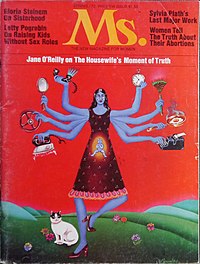
Photo from wikipedia
Milk, provided it is safe, provides important micronutrients that can combat hidden hunger (undernutrition). Many peri-urban poor people in Tanzania and Kenya use informal markets to purchase milk in order… Click to show full abstract
Milk, provided it is safe, provides important micronutrients that can combat hidden hunger (undernutrition). Many peri-urban poor people in Tanzania and Kenya use informal markets to purchase milk in order to provide nutritional benefits to their families. Household decision-making processes play an influential role in how much milk to buy and how it is treated. This exploratory qualitative study, conducted in peri-urban Nairobi and Dar es Salaam, examined how access to milk, control over milk handling and safety, and intra-household milk distribution are affected by gender dynamics and by changes in milk availability and price. Focus group discussions with 48 women and 45 men and key informant interviews with 8 men and 8 women, all of whom were parents or caretakers to young children, were conducted. The results indicate that gender roles in milk purchase and handling vary. Generally, providing enough milk is a man’s responsibility, whilst a woman is expected to ensure a nutritious diet. Yet women’s limited decision-making power regarding milk purchase can restrict their ability to provide sufficient milk. Interventions to promote safe milk consumption need to consider gender norms, strengthen intra-household collaborative decision-making, include men in nutrition programming, and increase women’s control over food expenditures.
Journal Title: Sustainability
Year Published: 2021
Link to full text (if available)
Share on Social Media: Sign Up to like & get
recommendations!